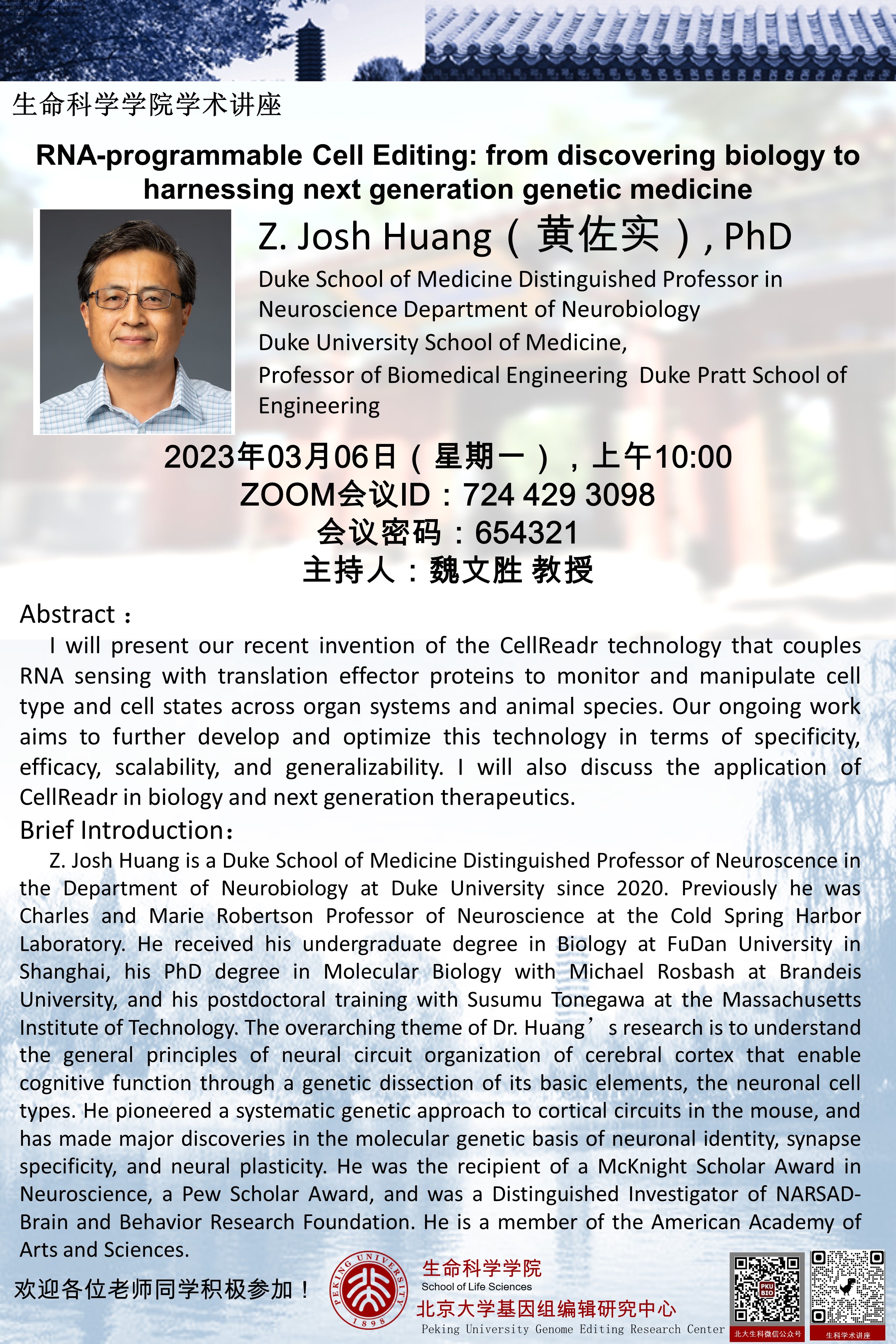Speaker: Z. Josh Huang (黄佐实), PhD, Duke School of Medicine Distinguished Professor in
Neuroscience, Department of Neurobiology, Duke University School of Medicine, Professor of Biomedical Engineering Duke Pratt School of Engineering
Host: Prof. Wensheng Wei, School of Life Sciences
Time: 10:00 am, March 6, 2023, GMT+8
Venue: Zoom Meeting ID: 724 429 3098 Password: 654321
Abstract:
l will present our recent invention of the CellReadr technology that couples RNA sensing with translation effector proteins to monitor and manipulate cell type and cell states across organ systems and animal species. Our ongoing work aims to further develop and optimize this technology in terms
of specificity, efficacy, scalability, and generalizability. I will also discuss the application of CellReadr in biology and next generation therapeutics.
Biography:
Z.Josh Huang is a Duke School of Medicine Distinguished Professor of Neuroscence in the Department of Neurobiology at Duke University since 2020. Previously he was Charles and Marie Robertson Professor of Neuroscience at the Cold Spring Harbor Laboratory. He received his undergraduate degree in Biology at FuDan University in Shanghai, his PhD degree in Molecular Biology with Michael Rosbash at Brandeis University, and his postdoctoral training with Susumu Tonegawa at the Massachusetts Institute of Technology. The overarching theme of Dr.Huang's research is to understand the general principles of neural circuit organization of cerebral cortex that enable cognitive function through a genetic dissection of its basic elements,the neuronal cell types.He pioneered a systematic genetic approach to cortical circuits in the mouse, and has made major discoveries in the molecular genetic basis of neuronal identity,synapse specificity, and neural plasticity. He was the recipient of a McKnight Scholar Award in Neuroscience, a Pew Scholar Award, and was a Distinguished Investigator of NARSAD-Brain and Behavior Research Foundation. He is a member of the American Academy of Arts and Sciences.
Source: School of Life Science, Peking University Genomc Editing Research Center
